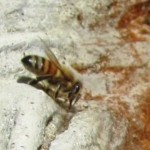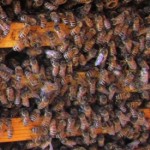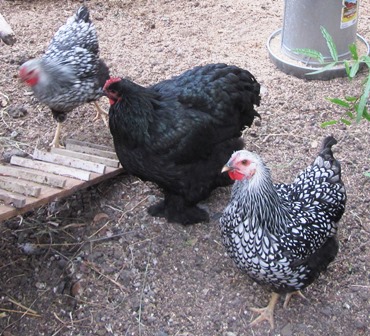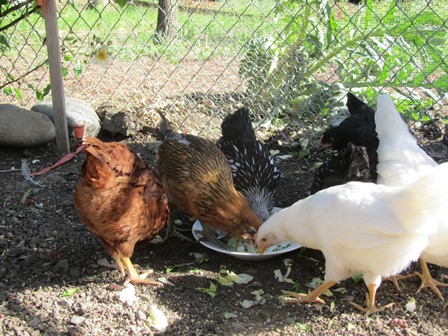Could Probiotics Help Honeybees Recover from Nosema?
Nosema apis is a tiny one-cell parasite recently reclassified as a fungus. It causes a serious infection in bees that disrupts the health of the bee gut. The sick bee becomes not only disoriented and unable to do its normal activities such as foraging or caring for bee larva.
Nosema is one, among many threats, to the global honeybee population. The infection has been associated with colony collapse disorder. But now science has shown that healing and improved survival rates from nosema (also known as nosemosis) is possible through the aid of probiotics.
In most instances, the fungus (that bees pick up as they ingest their food) causes no harm. But stress seems to create conditions for the fungus to invade and wreak havoc on the bee’s immune system. Just as probiotics support human gut microbiota (the microbe population in the human intestine) so, too, do probiotics appear to help the bee microbiota to better deal with a nosema infection.
In a Canadian study conducted by scientists at Université Laval in Quebec City, researchers discovered that they could lower the death rate of the bees suffering from nosema from 20 to 40 percent as compared to a control group by treating the sick bees with probiotics. In particular, a probiotic (P. apium) seemed to work best in the study.
Developing probiotics with specific microbes to contend with nosema is promising. But for beekeepers and scientists searching for the causes of colony collapse disorder, the work goes on to identify sources of stress that adversely affect the immune system of bees. For more information, see, https://www.sciencedaily.com/releases/2018/05/180517113819.htm
________________________________________________________________________
If you enjoy reading about gardening and farming topics, check out my Henny Penny Farmette series of mysteries: A BEELINE TO MURDER, THE MURDER OF A QUEEN BEE, and A HIVE OF HOMICIDES (Kensington Publishing).
Each book is chocked full of tips for gardening, keeping bees and chickens, and growing heirloom fruits and vegetables. There are also plenty of delicious recipes to try. Find these books in hardcover, paperback, ore ebook formats on Amazon.com, Barnes & Noble.com, Walmart.com and other online retailers or purchase at traditional bookstores everywhere.–Meera Lester
A BEELINE TO MURDER (#1) https://tinyurl.com/y6ue28xb
THE MURDER OF A QUEEN BEE (#2) http://tinyurl.com/yd7pz7af
A HIVE OF HOMICIDES (#3) http://tinyurl.com/ya5vhhpm
Chicken Bad Behavior–Best Nipped in the Bud
Many factors can affect the health and egg laying of your chicken flock, including weather, housing, size of population, breed, molting, parasite load, and nutrition. But when chickens start viciously pecking other hens or eating eggs, the underlying issues must be addressed.
Most often, the issue is a case of stress. Causes of chicken stress include overcrowding, excessive heat, too much bright light, lack of food and/or fresh water, and bad diet.
Other factors can include disruption of the pecking order by introducing new birds, especially those of other breeds (for example, fowl with combs and those without) or mixing old fowl with young. These factors all relate to flock management.
When birds start eating eggs (usually finding a cracked egg or broken ones, tasting them, and then pecking eggs to break them to eat) or viciously pecking on other hens, it’s best to figure out what in the hens’ environment is causing the stress. The causes must be eliminated.
For more tips on farming and beekeeping, plus delicious recipes, check out my newest mystery–A BEELINE TO MURDER. See, http://tinyurl.com/p8d6owd
 Facebook
Facebook Goodreads
Goodreads LinkedIn
LinkedIn Meera Lester
Meera Lester Twitter
Twitter








